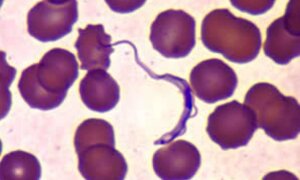The stresses endured by young people may have lasting impacts that appear much later in life, impacting their physical health in unexpected ways.
While the triggers behind psoriasis—the chronic, inflammatory skin condition—remain elusive, a new study suggests the roots could trace back to the strain of our childhood years. Those who struggle to cope with stress as adolescents may face a higher risk of developing psoriasis later as adults, according to the findings.
Military Data Uncover Childhood Stress-Psoriasis Connection After Decades
Psoriasis, an immune system disorder that accelerates skin cell growth, causes cells to pile up and form scales and itchy, painful plaques, often on the elbows, knees, and scalp. While symptoms can appear at any age, the condition usually emerges between 15 and 25 years old, affecting about a third of the U.S. adult population.
The study, published in the Journal of the European Academy of Dermatology and Venereology, analyzed data from more than 1.6 million Swedish men who enlisted for military service between 1968 and 2005 at an average age of 18.3 years. As part of the enlistment process, the men underwent psychological testing to assess their stress resilience.
The scientists looked at two groups of men—those who could handle stress very well and those who had a hard time dealing with stress. The researchers divided them into three stress level groups.
The men who weren’t good at handling stress were much more likely to develop psoriasis and psoriatic arthritis.
The men who couldn’t deal with stress very well had a 31 percent higher chance of getting psoriasis and a 23 percent higher chance of getting psoriatic arthritis, compared with the men who were really good at handling stress.
The men who had to go to the hospital because they could not deal with stress at all were 79 percent more likely to develop psoriasis, and their chances of getting psoriatic arthritis were 53 percent higher.
Stress Weighs on Nearly Half of US Adults
The study defines stress resilience as the ability to cope with and adapt to stressful events, trauma, and chronic adversity while maintaining normal physical and psychological functioning.
Nearly half of American adults report feeling stressed, according to a December 2023 Gallup poll. This is up from one-third in 2003.
Over time, chronic stress can take a severe toll on the body. For instance, when the body cannot recover from stress, it can elevate the baseline heart rate, blood pressure, and breathing rate. This increased strain forces the body to work harder than necessary for normal functioning, potentially triggering additional health issues such as heart disease, high blood pressure, chronic pain, or other inflammatory conditions such as psoriasis.
Signs of chronic stress include:
- physical aches and pains
- sleep disturbances including insomnia
- changes in social behavior (e.g., social withdrawal)
- low energy levels
- appetite changes (overeating or undereating)
- increased alcohol or drug use
- emotional dysregulation
- emotional detachment or withdrawal from others














